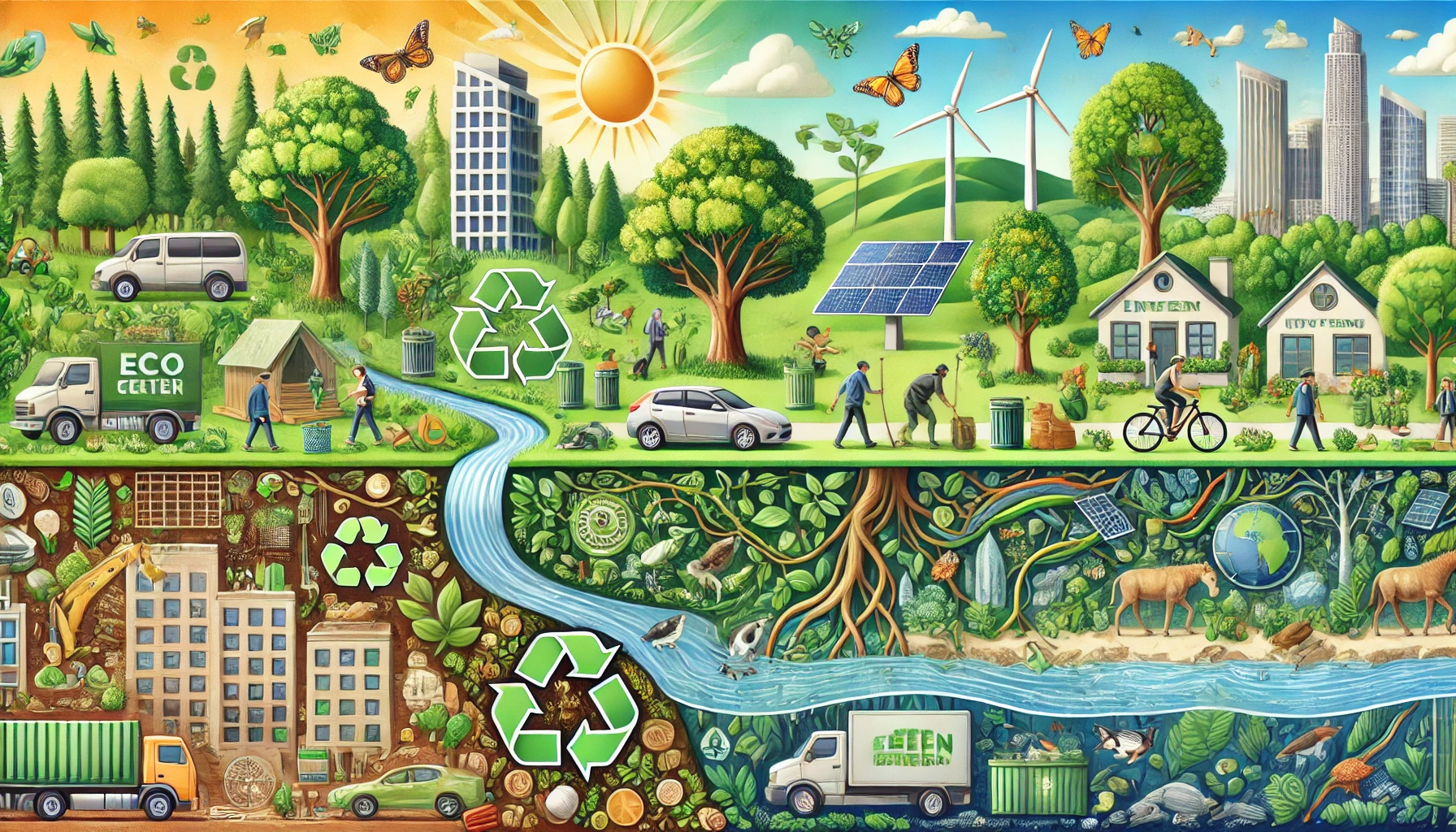As environmental awareness grows, eco-friendly trends have become more prevalent, shaping a future many hope to see—one where nature, industry, and society coexist in harmony. From sustainable practices in businesses to individual lifestyle changes, this movement has transformed how we interact with the planet. This article examines the evolution of these trends, their impact on the environment, and the role each of us plays in creating a sustainable world, supported by insights from global environmental organizations.
The Growth of Eco-Friendly Trends
Eco-friendly practices are no longer niche; they are mainstream, influencing consumer behavior, corporate strategies, and government policies. According to the World Economic Forum (WEF), global awareness of climate change and pollution has driven demand for sustainable products and practices, with 77% of consumers wanting to live more sustainably (WEF, 2023). Businesses, too, are stepping up by adopting eco-friendly practices, from reducing plastic use to switching to renewable energy sources.
Moreover, the United Nations Environment Programme (UNEP) reports that cities worldwide are transforming urban spaces to incorporate green infrastructure. Sustainable urban planning includes green rooftops, urban parks, and eco-friendly public transportation systems, promoting cleaner air and a healthier quality of life for urban residents (UNEP, 2022).
Positive Environmental Impacts
The growing adoption of eco-friendly trends has brought about tangible benefits to the environment.
- Reduction in Plastic Waste: With initiatives to reduce single-use plastics, many companies are introducing alternatives such as biodegradable packaging. Greenpeace notes that these measures have helped cut down plastic pollution, which has long affected oceans and marine life (Greenpeace, 2023).
- Cleaner Energy Sources: The shift to renewable energy has significantly reduced carbon emissions. The International Renewable Energy Agency (IRENA) reports that wind, solar, and hydropower are the fastest-growing energy sources, and renewable energy use has doubled in the past decade (IRENA, 2023).
- Increased Biodiversity: The return of native plants and reforestation efforts are restoring habitats and supporting wildlife populations. The World Wildlife Fund (WWF) emphasizes that reforestation not only captures carbon dioxide but also provides habitats essential for biodiversity (WWF, 2022).
- Healthier Urban Living: Green spaces in cities improve air quality, reduce heat, and provide residents with recreational areas. The World Health Organization (WHO) confirms that these urban green spaces positively impact mental and physical health by reducing stress and promoting active lifestyles (WHO, 2022).
The Role of Individuals in Promoting Eco-Friendly Trends
Sustainability is a collective effort that requires participation at every level, including individuals, businesses, and governments. By making simple choices—like using reusable products, conserving water, and supporting eco-friendly brands—we can contribute to a greener future. According to Earth Day Network, small actions by individuals, when multiplied globally, make a significant impact in reducing pollution and promoting sustainability (Earth Day Network, 2023).
Conclusion: A Vision of a Sustainable Future
The rise of eco-friendly trends marks a shift toward a future that values sustainability and environmental well-being. Through conscious consumerism, sustainable urban planning, renewable energy, and conservation efforts, we are collectively creating the world we want to see—a world where humans live in harmony with nature. By embracing and supporting eco-friendly practices, we can ensure a healthy planet for generations to come.
References:
- World Economic Forum. (2023). Shifting Consumer Demands and Sustainability.
- United Nations Environment Programme. (2022). Sustainable Urban Development.
- Greenpeace. (2023). Plastic Pollution and Ocean Health.
- International Renewable Energy Agency. (2023). Renewable Energy Trends and Impact.
- World Wildlife Fund. (2022). Reforestation and Biodiversity.
- World Health Organization. (2022). Benefits of Urban Green Spaces.
- Earth Day Network. (2023). Individual Action and Global Impact.


